Letter to Brezhnev Blu-ray Movie
HomeLetter to Brezhnev Blu-ray Movie 
Blu-ray + DVDBFI Video | 1985 | 94 min | Rated BBFC: 15 | Apr 24, 2017
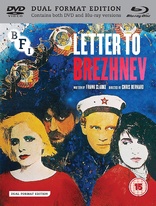
Movie rating
6.6 | / 10 |
Blu-ray rating
| Users | 0.0 | |
| Reviewer | 4.5 | |
| Overall | 4.5 |
Overview
Letter to Brezhnev (1985)
Two Soviet sailors, Peter and Sergei, go ashore in Liverpool to spend one night on the town. Peter can speak a minimal amount of English but it's enough to make contact with two Liverpudlian natives, Elaine and Theresa. Elaine and Peter immediately fall in love with each other, but the night is short and they must leave with the ship. Elaine can't forget him and writes a letter to Soviet General Secretary Leonid Brezhnev, asking him to make it possible for them to reunite.
Starring: Peter Firth, Alfred Molina, Alexandra Pigg, Margi Clarke, Tracy Marshak-NashDirector: Chris Bernard
| Drama | Uncertain |
| Romance | Uncertain |
| Comedy | Uncertain |
Specifications
Video
Video codec: MPEG-4 AVC
Video resolution: 1080p
Aspect ratio: 1.67:1
Original aspect ratio: 1.66:1
Audio
English: LPCM 2.0
Subtitles
English SDH
Discs
Blu-ray Disc
Two-disc set (1 BD, 1 DVD)
DVD copy
Playback
Region B (locked)
Review
Rating summary
| Movie | 4.5 | |
| Video | 4.5 | |
| Audio | 5.0 | |
| Extras | 4.5 | |
| Overall | 4.5 |
Letter to Brezhnev Blu-ray Movie Review
Reviewed by Dr. Svet Atanasov January 4, 2018Chris Bernard's "Letter to Brezhnev" (1985) arrives on Blu-ray courtesy of the British Film Institute. The supplemental features on the disc include original promotional materials for the film; new video interview with actress Margi Clarke; new video program with actors Alexandra Pigg and Peter Firth; new audio commentary by director Chris Bernard and writer Frank Clarke; and more. The release also arrives with a 24-page illustrated booklet featuring new writings by Julia Hallam and screenwriter Frank Clarke, as well as technical credits. In English, with optional English SDH subtitles for the main feature. Region-B "locked".
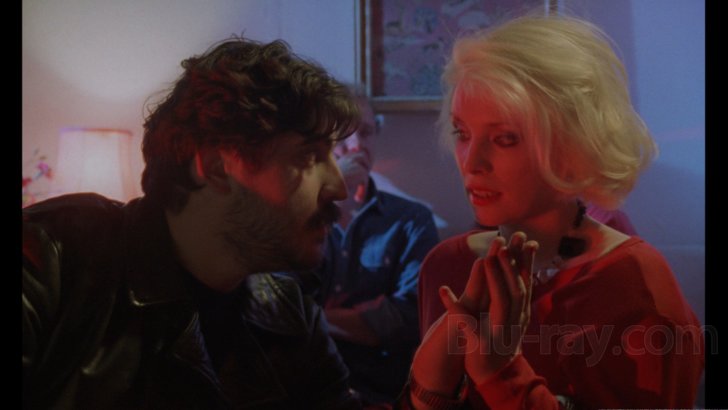
Love is in the air
More than thirty years later it is awfully easy to see only one side of Chris Bernard’s film Letter to Brezhnev, which is the side that makes it look like a very charming but straightforward romantic comedy about two young women trying to find decent partners to fall in love with in a place that most of the time behaves like a cranky old pensioner that is struggling to make ends meet. This is hardly surprising, however, as the main message that is delivered though their story is about believing in true love and wanting to discover it with someone truly special. But the film also has a flip side that hosts a lot of important truths about the spirit and pulse of an era that in more ways than one is actually directly responsible for the complex global reality we face today.
The events in the film take place in Liverpool sometime during the early ‘80s. So this is the Cold War era and people on both sides of the Iron Curtain are still carefully conditioned to believe what the political elites in the East and West are channeling via the mainstream media. (All of this is emphasized in the final act, but it is important to mention here because it sets up the clash of ideas that brings the main characters together and then strengthens their relationships. It is classic evidence that the old ‘opposites attract’ theory is legit). On a cold and depressingly gray day, a Soviet ship docks at the local port and shortly after Peter (Peter Firth) and Sergei (Alfred Molina) head to the heart of Liverpool to get a taste of the supposedly great nightlife. At approximately the same time best friends Elaine (Alexandra Pigg) and Teresa (Margi Clark) also go out to have a good time and end up in a tiny pub, but after getting disappointed yet again with the local selection of bachelors also head downtown. At the hottest club in town Elaine and Teresa flirt with the two Russian sailors and then decide to have an unforgettable night with them in one of the area’s pricier hotels. By the early morning hours, however, Elaine is already madly in love with Peter, while Teresa is convinced that after her erotic adventure with Sergei her love life is bound for a long-lasting crisis. Not long after that Peter and Sergei return to the ship and head back to the U.S.S.R.
The truths gradually begin to emerge here, after Elaine decides that her future is with Peter, and then discovers that the British authorities are anything but thrilled that she plans to travel to the U.S.S.R. and reunite with him. While Elaine and Teresa debate what it truly means to be in love and the type of sacrifices that one must be prepared to make for it, the film offers a very credible analysis of the reality, freedoms, and future of young people in Liverpool. The big picture that emerges is quite bleak and in many ways essentially erodes the positive social image that Western democracies touted at the time. The U.S.S.R. of course is portrayed as the big exotic scarecrow and anyone linked to it as a lying hypocrite secretly serving the agenda of its red rulers. Some of the contrasts are obviously exaggerated so that the viewer begins to draw the relevant comparisons, but Bernard does a really good job of revealing the significance of the mass paranoia that actually preserved the Cold War for such a long time. (Ironically, all these years later the exact same type of manufactured paranoia is yet again used to drive political agendas and frame Russia as the ultimate threat to the West).
The film has a wonderful ‘80s vibe with a unique British flavor that could very easily get one stuck in ‘nostalgia mode’ for days. In fact, a top-notch soundtrack that blends classic tunes by the likes of Bronski Beat and Fine Young Cannibals and original music by Alan Gill pretty much guarantees such an outcome.
*Bernard and his team struggled to complete the film with the tiny budget they had secured -- and at one point actually stopped shooting because they ran out of money -- but it may very well be the main reason why it turned out to be such an impressive time capsule. It has the best unfiltered visuals from working-class Liverpool captured for a feature film from the ‘80s.
Letter to Brezhnev Blu-ray Movie, Video Quality 
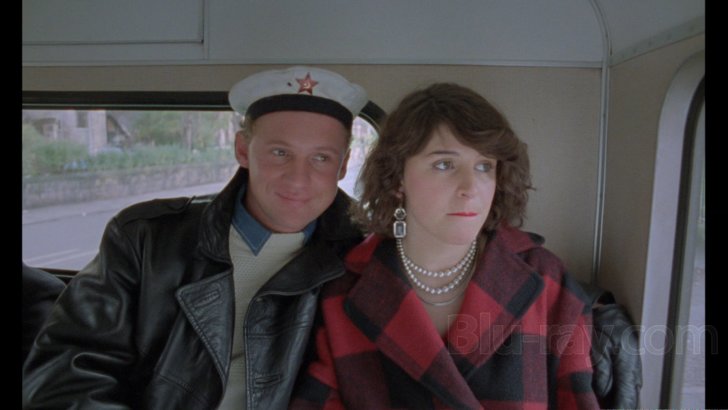
Presented in an aspect ratio of 1.67:1, encoded with MPEG-4 AVC and granted a 1080p transfer, Chris Bernard's Letter to Brezhnev arrives on Blu-ray courtesy of the British Film Institute.
The release is sourced from a brand new 2K master which was struck from the Super 16mm negative. The film looks fabulous in high-definition. I have an old DVD release of it which I used to do some quick direct comparisons and the difference really is beyond dramatic. A lot of the darker footage from the club for example now has the type of proper depth that any film should, while on the DVD the visuals are flat and occasionally even smeary. Also, on a larger screen even if upscaled the footage is pretty close to the point where it actually begins to break down, so in terms of depth, delineation, and clarity the quality here is truly of an entirely different type. I also like a lot the color grading. There are lovely healthy primaries and very natural organic nuances. Image stability is outstanding. There are no traces of problematic degraining or sharpening corrections. However, even though there are no concerning anomalies with some minor optimizations the darker footage could have looked even better. There are no traces of age-related imperfections. My score is 4.75/5.00. (Note: This is a Region-B "locked" Blu-ray release. Therefore, you must have a native Region-B or Region-Free player in order to access its content).
Letter to Brezhnev Blu-ray Movie, Audio Quality 
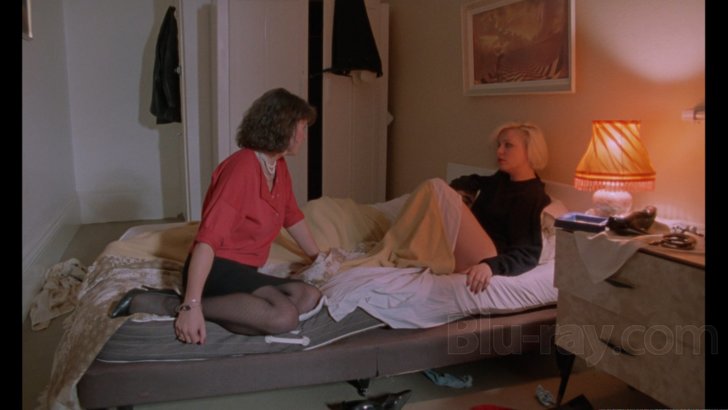
There is only one standard audio track on this Blu-ray release: English LPCM 2.0. Optional English SDH subtitles are provided for the main feature.
The lossless track is quite the revelation. On the old PAL DVD release that I have the improper pitch is very obvious because the music has a crucial role in the film and I can instantly detect the difference. Now the lossless track eliminates all of these pitch-related issues and actually offers a far better range of dynamics. The dialog is clean and easy to follow, but there are some very heavy accents here so a lot of folks will likely find the optional English SDH subtitles very helpful.
Letter to Brezhnev Blu-ray Movie, Special Features and Extras 
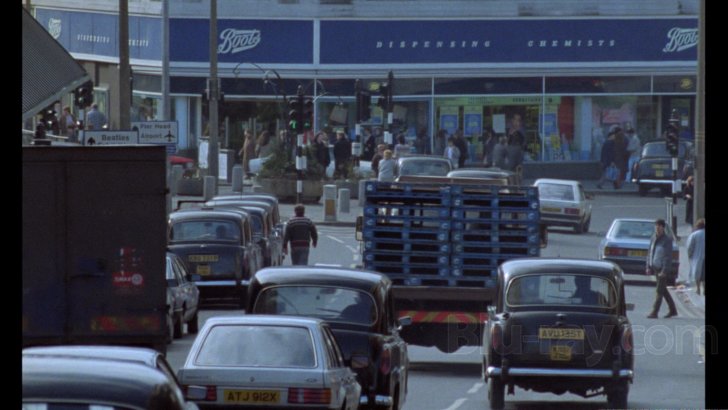
- Trailer - original restored trailer for Letter to Brezhnev. In English, not subtitled. (2 min).
- Interview with Margi Clarke - in this exclusive new video interview, actress Margi Clarke discusses her special relationship with Alexandra Pigg and the tremendous atmosphere that they experienced during the shooting of Letter to Brezhnev. There are also some very interesting observations about Russia's image in the United Kingdom during and after the Cold War, the ways in which Liverpool has changed, and the film's premiere in Kirkby and lasting appeal. In English, not subtitled. (35 min).
- Interview with Margi Clarke - in this exclusive new video interview, actors Alexandra Pigg and Peter Firth discuss the early stages of their careers and explain how they became involved with Letter to Brezhnev. The actors also recall what it was like to shoot the film with a small budget and the many ways in which it managed to preserve the rhythm of life in Liverpool during the '80s. In English, not subtitled. (14 min).
- Audio Commentary by Margi Clarke - this is a wonderful and actually very poetic commentary that initially appeared on C'est La Vie's DVD release of Letter to Brezhnev. It has a great deal of factual information about life in Liverpool and the type of reality that the film attempts to expose.
- Audio Commentary by Chris Bernard and Frank Clarke - this is a brand new audio commentary with more conventional information about the shooting of specific sequences, lighting and framing choices, the pacing of the film and plot elements. The commentary was recorded in 2017 for the BFI.
- From Liverpool with Love - this archival featurette takes a closer look at the production history of Letter to Brezhnev. I contains comments from Chris Bernard and raw footage from the shooting of the film. The featurette initially appeared on the C'est La Vie's DVD release. In English, not subtitled. (16 min).
- Stills and Collections Gallery - a large collection of production stills and promotional materials.
1. Color Stills
2. Polaroids
3. Black and White Stills
4. Poster and Ephemera
- Booklet - 24-page illustrated booklet featuring Julia Hallam's essay "Letter to Brezhnev", screenwriter Frank Clarke's essay "The Making of Letter to Brezhnev", contemporary review of the film by Jill Forbes, and technical credits.
Letter to Brezhnev Blu-ray Movie, Overall Score and Recommendation 
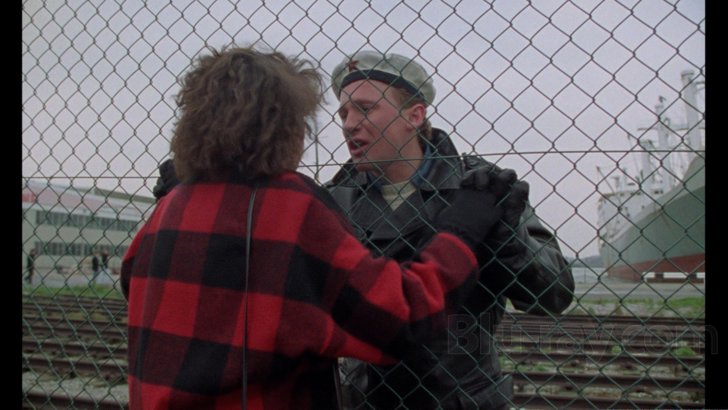
I consider Letter to Brezhnev the quintessential '80s British film -- and not of the glitzy type but as the authentic time capsule that reveals a lot with very little. It is incredibly charming, but there are also a lot of truths in it that in an odd sort of way actually make it quite relevant today. Also, like most great '80s films it has a top-notch soundtrack that could very easily get you stuck in 'nostalgia mode' for days. The BFI's recent Blu-ray release is sourced from a very strong 2K remaster and comes with a terrific selection of exclusive new and archival bonus features. VERY HIGHLY RECOMMENDED.
Similar titles
Similar titles you might also like

Seven Sinners
1940

The Prisoner
Arrow Academy
1955

Bastards
Les salauds
2013

Toto the Hero
Arrow Academy
1991

My Beautiful Laundrette
1985

The Other Side of Hope
Toivon tuolla puolen
2017

L' Atalante 4K
1934

Orphée
Orpheus
1950

Love Affair
1939

The Tamarind Seed
1974

What Happened Was...
Limited Edition
1994

Now, Voyager
1942

Stardust Memories
Arrow Academy
1980

Gregory's Girl
4K Restoration
1981

One, Two, Three
Masters of Cinema
1961

Ariel
1988

My Man Godfrey
1936

Va savoir
Who Knows? | Limited Edition
2001

Tabu: A Story of the South Seas
Masters of Cinema
1931

La Ronde
1950